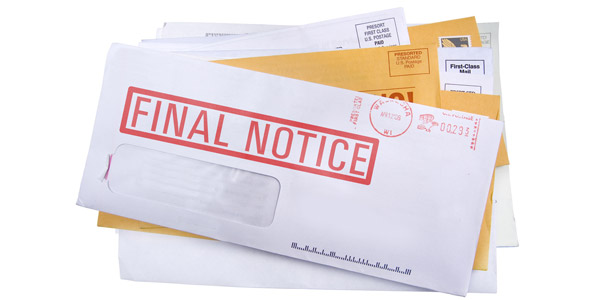We ask Facebook – what would you do if your partner refused to get debt advice?
Brenda (not her real name) desperately wanted help with the debts she...
It goes without saying that credit cards are everywhere these days. Many people use them by default when going about their daily lives. As long as you can manage the monthly payments and aren’t relying on credit cards for living expenses, they can be pretty useful.
For those who don’t know, a credit card is a type of unsecured debt. Unlike a debit card that only lets you spend what you have in your account, a credit card will let you borrow money up to your credit limit.
If you’re thinking about getting a credit card, have a persistent credit card balance, or just want to be clearer on all of the jargon, read on!

If you pay your balance off in full every month, then you won’t pay interest on your purchases.
To put it another way, if you have a 0% introductory card offer on purchases, as long as you make the minimum payment every month, you won’t pay interest for the length of the offer.
You’ll usually be charged different interest rates when you use your cards for things such as spending abroad while on holiday or withdrawing money from your card.
An annual percentage rate (APR) tells you how much it’ll cost you to borrow money over 12 months if you didn’t pay the full balance off each month.
APR is an annual interest rate but, it also includes any associated costs such as annual fees. Creditors are legally required to state the APR, and everyone works it out the same way so you can compare financial products more easily.
A representative APR is the rate that 51% of customers who apply for the product secure. Your actual APR will be based on your individual circumstances, so it might be different.
One thing to note is that APR doesn’t take into account compound interest which is where you’re charged interest on the interest that’s already been added to your debt.
So, if your balance is £100, you pay £20 off, and are charged £10 in interest, your new balance would be £90, which you’ll be charged interest on, not £80 (£100 – £20 = £80).
Your interest rate can go up or down, and this can have an impact on how much you’re repaying.
New rules came into effect via the Financial Conduct Authority this year, aimed at helping customers who have what’s known as ‘persistent debt’.
Your credit card is considered to be in persistent debt if you’ve made the minimum payments on your credit card for 18 months but the interest and charges added to your account total more than what you’ve repaid on your actual balance.
In this situation, your credit card company might encourage you to increase your payment to help you repay what you owe sooner. If, after 36 months (three years) you haven’t made changes to your payment your credit card provider could cancel your card.
As scary as this might seem, please try not to worry. Your credit card company will always write to you in good time before making any changes to your account.

No. If you can’t afford to repay what you owe on a consumer debt – like a personal loan, credit card or catalogue – it isn’t a criminal offence.
In some very rare cases, you can go to prison if you don’t pay your council tax or magistrates’ fines.
You can unlock more debt myths here.
Below is a breakdown of the different types of credit cards and how they work. Please keep in mind that this is very broad guidance. Your own results may vary.
Balance transfer – You might find this beneficial if you’re paying interest on an existing balance and can switch to a 0% interest balance transfer credit card.
As long as you make the minimum payments, you won’t pay interest for the promotional period. Make sure you check what the balance transfer fee is and what the APR after the promotion has ended.
0% purchases – This might be handy if you want to buy something new but can’t afford to pay the balance in full right now. As long as you make the minimum payment every month, you won’t pay interest for the duration of the promotion.
Cashback – this is a good feature to have if you regularly spend on your credit card. You’ll earn rewards for every pound spent such as cash paid back into your account, vouchers or even air miles.
Store cards – you might consider this one if you regularly spend with certain supermarkets or large retailers who have their own credit cards. They’ll give you extra rewards when you spend, such as vouchers, discounts or loyalty points.
Credit builder – you may see these advertised as a way to improve a poor credit rating. However, building credit this way will only work if you manage your credit usage well and while it does help some people it can cause problems for others.
Usually, you’ll have a low credit limit and a higher APR than other providers. With that in mind, make sure you’re paying the balance off in full every month.
If you’re looking to improve your credit score, there are other ways besides taking out more credit. For example, Loqbox helps you save money while building your credit score.
We’re not endorsing Loqbox or receiving any financial incentive from linking them, but we think their product could be a good idea for people trying to improve their creditworthiness.
Standard credit card – while this won’t have any 0% interest-free periods, the APR should be reasonable. Some people keep a standard credit card to hand just in case they need it, and then pay the whole balance off as soon as possible.
You might be charged an annual fee for your credit card. How much that’ll be will vary between providers.
If you exceed your credit limit or you miss a payment, you could also be charged. If you’re transferring a balance to a new credit card, there’s usually a fee associated with this as well.

No, but you can add additional cardholders. However, if you take out a credit card in your name, you’re responsible for paying the full balance even if an additional cardholder has spent the money.
This is worth bearing in mind if you’re considering adding your partner to your credit card account. Should they be unable to make payments, it’ll fall on you to pay the money back.
Some credit cards will let you transfer money from your credit card into your bank account. Before you do this, it’s important to check what the interest rate on the balance will be, as it will usually differ from the interest rate for purchases.
Yes, if you change your mind you can cancel the agreement within 14 days of receiving the card. You just need to make sure there’s no outstanding balance on the card.
No. Any application you make for credit will be noted on your credit file, which is called a ‘hard check’. If you get a copy of your credit file, you’ll be able to see these checks.
Applying for too many credit products in a short amount of time can pose as a warning sign to creditors that you may not be in a great position to borrow money. This can work against you for future credit card applications.

Certain types of credit builder cards are advertised at people who’ve been turned down by other providers. While they might consider people with lower credit scores you’ll still be adding another hard check to your credit file.
If you’re not sure what type of card to get, before you apply for a credit card, use moneysavingexpert.com’s eligibility checker. Fill in a few details and you’ll be shown a list of credit cards and how likely you are to get accepted for each.
Unlike an application, this type of search is a ‘soft check’ and won’t show up on your credit file. Or, why not read our article on alternatives to using credit cards.
If you’re worried about credit cards or a debt problem, our free online advice tool can help you create a monthly budget and email you a personal action plan full of advice and practical solutions to your debts.
If you don’t need debt advice but want to take control of your finances, our 7 Days, 7 Ways email programme can help. Over 11,000 people have signed up, so make sure you don’t miss out!